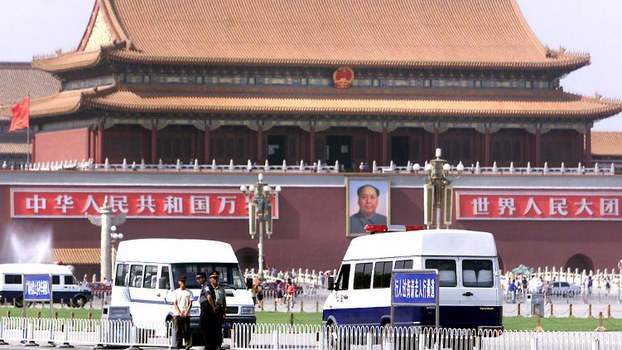




Cambridge University Press (CUP) says it has reversed a recent decision to censor more than 300 articles from the China Quarterly academic journal's China website at the request of Beijing.
"We can now confirm that all the articles have been re-posted on CUP's internet portals in China & can be downloaded free of charge," the journal said via its Twitter account on Monday, adding: "We fully support this decision."
The reversal of CUP's decision comes after an outcry among China scholars and academics and a petition on Change.org by Christopher Balding of the Peking University HSBC Business School in the southern Chinese city of Shenzhen.
"As academics, we believe in the free and open exchange of ideas and information on all topics not just those we agree with," the petition said. "It is disturbing to academics and universities worldwide that China is attempting to export its censorship on topics that do not fit its preferred narrative."
It called on universities to boycott CUP in the event that it continued to acquiesce to the demands of the ruling Chinese Communist Party, which has recently launched a campaign against "unauthorized" foreign content hosted within China.
The takedown had affected 315 articles dating back to the 1960s on politically sensitive topics like the Cultural Revolution, the 1989 military crackdown on the Tiananmen Square democracy movement, Tibet, Xinjiang, Hong Kong, and Taiwan.
China Quarterly editor Tim Pringle said in a statement via the journal's Twitter account that the articles were taken down without the consent of anyone at the journal.
"CUP had previously taken down 315 articles following an "instruction" from a Chinese import agency without the consent of The China Quarterly," he wrote, saying that he supported the decision to unblock the articles.
"It is not the role of respected global publishing houses such as CUP to hinder [access to academic articles]."
He said the journal would continue to publish articles "regardless of topic or sensitivity."
CUP had said it had complied with the takedown request so as to avoid shutdown of the entire Chinese site.
'Intense feeling of insecurity'
Joseph Cheng, former political science professor at Hong Kong's City University, said the incident betrayed an intense feeling of insecurity in the highest echelons of the Communist Party leadership.
"The Chinese government gives the impression of the sense of entitlement that comes from great wealth, to the extent that they don't even have to bother with international norms," Cheng told RFA. "This shows a lack of respect for academic freedom worldwide, and ultimately the huge feeling of insecurity that prevails in the Chinese leadership."
"Most people won't even read these articles [which are aimed at] university lecturers and researchers," he said. "They would have a very limited impact on the general public."
Hebei journalist Zhu Xinxin said the incident is the first time the journal has been targeted by Chinese censors.
"The Chinese government is using a carrot-and-stick approach when it comes to overseas academic institutions," Zhu said. "The Chinese Communist Party ... is trying to engage in red imperialism in every sphere: the political, the cultural and the economic."
Repeated calls to The China Quarterly rang unanswered during office hours since Friday.
The CUP reported double-digit year-on-year growth in the China market for the last five years running, according to its annual report.
The growth had been achieved "through close collaboration with Chinese publishers, large private education service providers, leading foreign language schools and new education technology companies," it said.
The takedown came as Beijing begins to implement tougher online controls ordered by President Xi Jinping in February, removing any foreign content that hasn't been licensed or preapproved by government censors.
Last month, SAPPRFT issued takedown notices last week to two popular multimedia websites targeting young people, AcFun and bilibili, removing a slew of overseas TV shows and video content.
China routinely censors "sensitive" keywords like "June 4, 1989" and "6.4" behind the Great Firewall, although many of the country's 731 million internet users deploy puns and other disguises to mention banned topics.
Typically, searches for blocked content in China return a message apologizing for the nondelivery of search results "in accordance with relevant laws, regulations, and policies," and the deleted China Quarterly articles wouldn't have shown up in search results carried out by users in China.
Reported by Xin Lin for RFA's Mandarin Service, and by the Cantonese Service. Translated and edited by Luisetta Mudie.